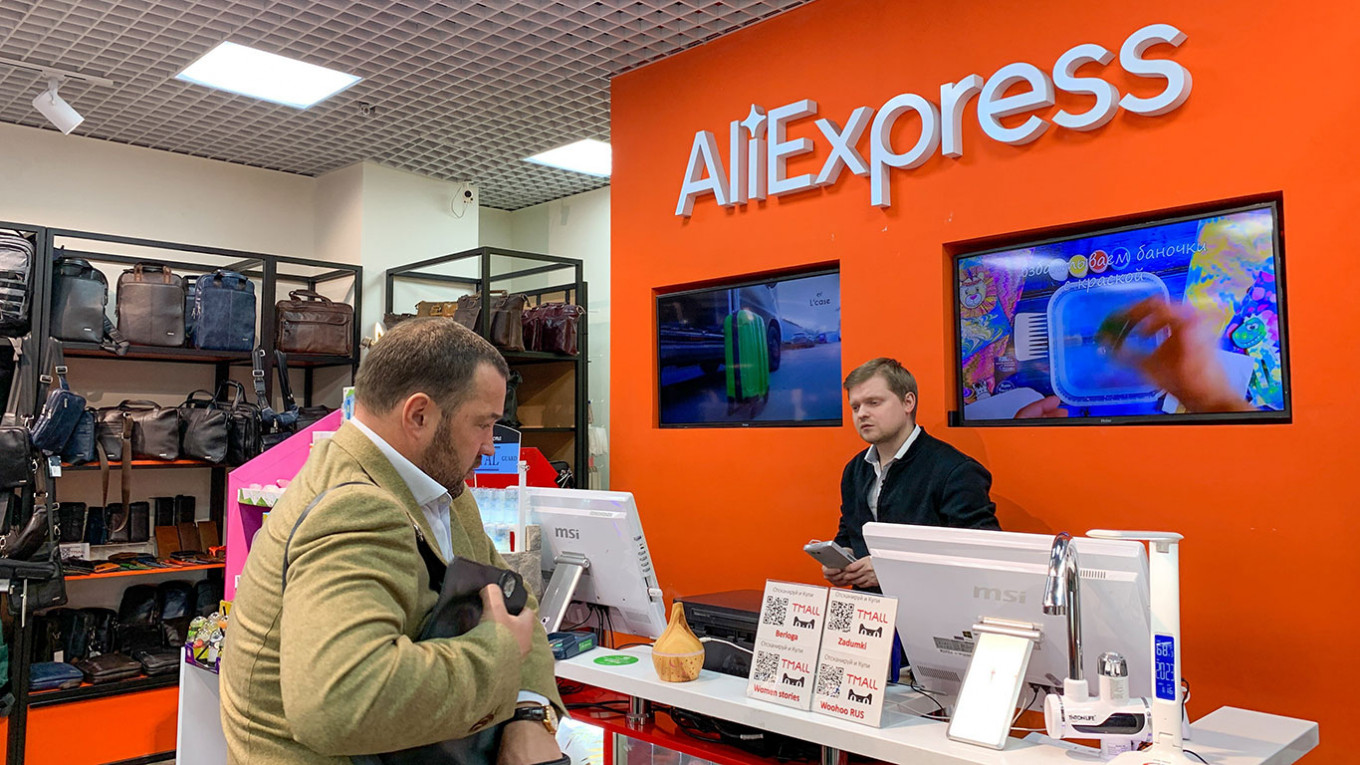Several top Russian e-commerce companies have announced impressive results for 2021 — continuing their rapid growth since the start of the coronavirus pandemic even as traditional brick-and-mortar shops had fully reopened.
Russia’s online retail market expanded by 40% over the year, according to preliminary estimates by Infoline, but market leaders Wildberries, Nasdaq-listed Ozon, and international platform AliExpress Russia significantly outperformed.
Wildberries
Wildberries, Russia’s largest online retailer, announced annual turnover had increased by 93% to 844 billion rubles ($11.5 billion) — including a record 305 billion rubles in the fourth quarter alone. Preliminary estimates for annual profit came in at about 18 billion rubles ($245 million) before taxation.
In 2021, Wildberries customers made a total of 809 million orders, up 146% on the previous year and some 410,000 new merchants — essentially small businesses and self-employed sellers — connected to the website.
The company also pursued international expansion in 2021, launching sales in competitive Western markets like France, Germany, Italy, Spain, the U.K. and the U.S. as well as across eastern Europe in Moldova, Lithuania, Latvia, Turkey and Estonia.
Ozon
According to preliminary unaudited results, Ozon saw its gross merchandise value (GMV) exceed 445 billion rubles ($6 billion) in 2021 — up 125% on 2020 — to close the gap on Wildberries. The company said it delivered more than 220 million orders — around three times more than in 2020. By the end of the year, Ozon said it boasted more than 25 million monthly customers.
That growth was partly down to a rapid increase in products available on the website. Assortment expanded more than sevenfold year-on-year, exceeding 80 million individual products by the end of the year.
Having recently raised significant sums of capital on the international markets — a $1.2-billion initial public offering (IPO) in November 2020 and a $750-million bond issuance in early 2021 — Ozon continued investing to expand its logistics capacity through the year. That consists of a large network of fulfillment and storage warehouses, as well as smaller dark stores and pickup points, lockers and courier services.
Ozon CEO Alexander Shulgin said the results were “fantastic” and pointed to the company’s “incredible progress in cultivating high-frequency shopping habits” among its customers.
AliExpress Russia
AliExpress Russia said it generated 306 billion rubles ($4.2 billion) in turnover, excluding services last year — up 46%.
Initially dedicated to cross-border sales from China, the company continued developing its network of Russia-based sellers in 2021. These sales more than doubled over the year and now account for a third of purchases by volume, the company said.
The firm said it had orders from 28.7 million unique customers across the year. Significant traffic was generated by the Vkontakte and Odnaklassniki social networks — which are owned by major AliExpress shareholder VK, formerly Mail.Ru — accounting for 13 million unique users.
Alongside VK, AliExpress Russia is co-owned by Chinese e-commerce giant Alibaba, Alisher Usmanov’s USM Holdings and the Russian Direct Investment Fund (RDIF).
In 2022, the company said it plans to “increase its logistic capacities,” reduce delivery time for goods shipped from China and continue expanding the network of sellers and goods based in Russia.
This article originally appeared on East-West Digital News.
A Message from The Moscow Times:
Dear readers,
We are facing unprecedented challenges. Russia's Prosecutor General's Office has designated The Moscow Times as an "undesirable" organization, criminalizing our work and putting our staff at risk of prosecution. This follows our earlier unjust labeling as a "foreign agent."
These actions are direct attempts to silence independent journalism in Russia. The authorities claim our work "discredits the decisions of the Russian leadership." We see things differently: we strive to provide accurate, unbiased reporting on Russia.
We, the journalists of The Moscow Times, refuse to be silenced. But to continue our work, we need your help.
Your support, no matter how small, makes a world of difference. If you can, please support us monthly starting from just $2. It's quick to set up, and every contribution makes a significant impact.
By supporting The Moscow Times, you're defending open, independent journalism in the face of repression. Thank you for standing with us.
Remind me later.







